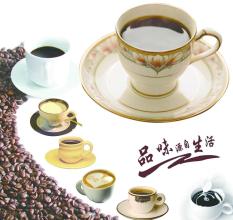Burundian coffee with excellent acidity describes the characteristics of grinding degree and introduces the taste of varieties in producing areas.
There are two major ethnic groups in Burundi, and only about 15 percent of the Tutsi have ruled the country since the 16th century, controlling the civilian population, which is mainly made up of Hutu, plus a very small number of indigenous Twa. This abnormal social structure occupied by ethnic minorities planted the evil seed of national instability and reached its peak in October 1993. Just four months after taking office, Melchior Ndadaye, Burundi's first ever Hutu head of state and the first democratically elected president, was assassinated by a mainly Tutsi-controlled military. The death of Ndadaya led to a comprehensive ethnic conflict in which at least 200000 of the population of both sides were slaughtered, of which 65000 Tutsi were slaughtered to fewer than 5000. The massacre lasted until 2002, when the Tutsi government finally signed an international armistice with four different Hutu rebels, while the ceasefire agreement with the last rebel group, the Forces nationales de Liberation (FNL) (French: Conseil National Pour la D é fense de la D é mocratie-Forces pour la D é fense de la D é mocratie, NCDD-FDD), was signed in Dar es Salaam, Tanzania, on September 7, 2006.
Burundi coffee was introduced by Belgian colonists in 1930. Unfortunately, many of these farms are on the border with war-torn Rwanda, putting pressure on coffee production.
Coffee producing areas in Burundi:
Coffee in Burundi is now grown only on small farms. Almost all coffee produced in Burundi is Arabian coffee beans, while coffee trees in Ngozi are planted at an altitude of more than 1200 meters.
Features of Burundian coffee:
Burundi has the most diverse and successful coffee industry in the world, and has its own characteristics. Burundian coffee is fragrant and has excellent acidity.
Flavor: mellow taste, rich aroma, excellent acidity
Suggested baking method: medium to deep baking
★★: good
Burundian coffee market:
Most of Burundi's coffee products are exported to the United States, Germany, Finland and Japan.

Important Notice :
前街咖啡 FrontStreet Coffee has moved to new addredd:
FrontStreet Coffee Address: 315,Donghua East Road,GuangZhou
Tel:020 38364473
- Prev

Costa Rican Saint Roman Coffee Flavor description Grinding characteristics Variety production area Taste Brand introduction
Located in the fertile hills of the Poas volcano in the central valley of Costa Rica, Fenghuang Manor is the first producer in Central and South America to produce honey-treated and sun-cured coffee. It is a completely 100% organically grown coffee manor. The owner believes that organic farming is a better choice for environmental maintenance and family health, even in the face of many technical and organizational
- Next

Taste characteristics of Puerto Rico Coffee Flavor description of Variety producing area
In fact, any kind of coffee will be given a unique flavor because of its origin, just like different music styles will always give you different feelings. Puerto Rico Yaoke coffee has the characteristics of boutique coffee, its acidity is very stable, full of particles, complete flavor, rich aroma. The reason why Yaocote chose coffee beans better than other producing areas on the island is that they are grown at high elevations.
Related
- Detailed explanation of Jadeite planting Land in Panamanian Jadeite Manor introduction to the grading system of Jadeite competitive bidding, Red bid, Green bid and Rose Summer
- Story of Coffee planting in Brenka region of Costa Rica Stonehenge Manor anaerobic heavy honey treatment of flavor mouth
- What's on the barrel of Blue Mountain Coffee beans?
- Can American coffee also pull flowers? How to use hot American style to pull out a good-looking pattern?
- Can you make a cold extract with coffee beans? What is the right proportion for cold-extracted coffee formula?
- Indonesian PWN Gold Mandrine Coffee Origin Features Flavor How to Chong? Mandolin coffee is American.
- A brief introduction to the flavor characteristics of Brazilian yellow bourbon coffee beans
- What is the effect of different water quality on the flavor of cold-extracted coffee? What kind of water is best for brewing coffee?
- Why do you think of Rose Summer whenever you mention Panamanian coffee?
- Introduction to the characteristics of authentic blue mountain coffee bean producing areas? What is the CIB Coffee Authority in Jamaica?

